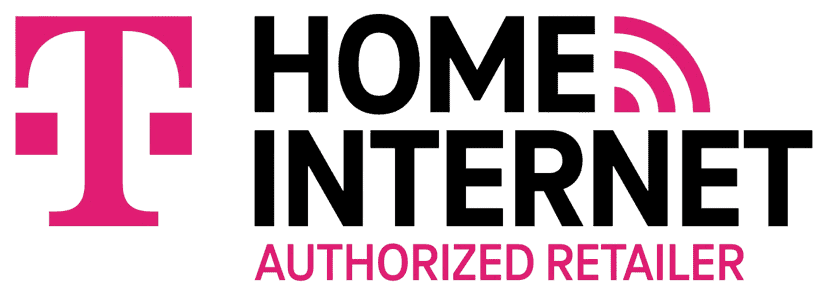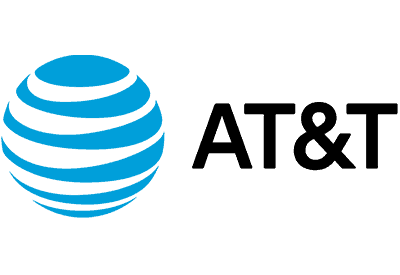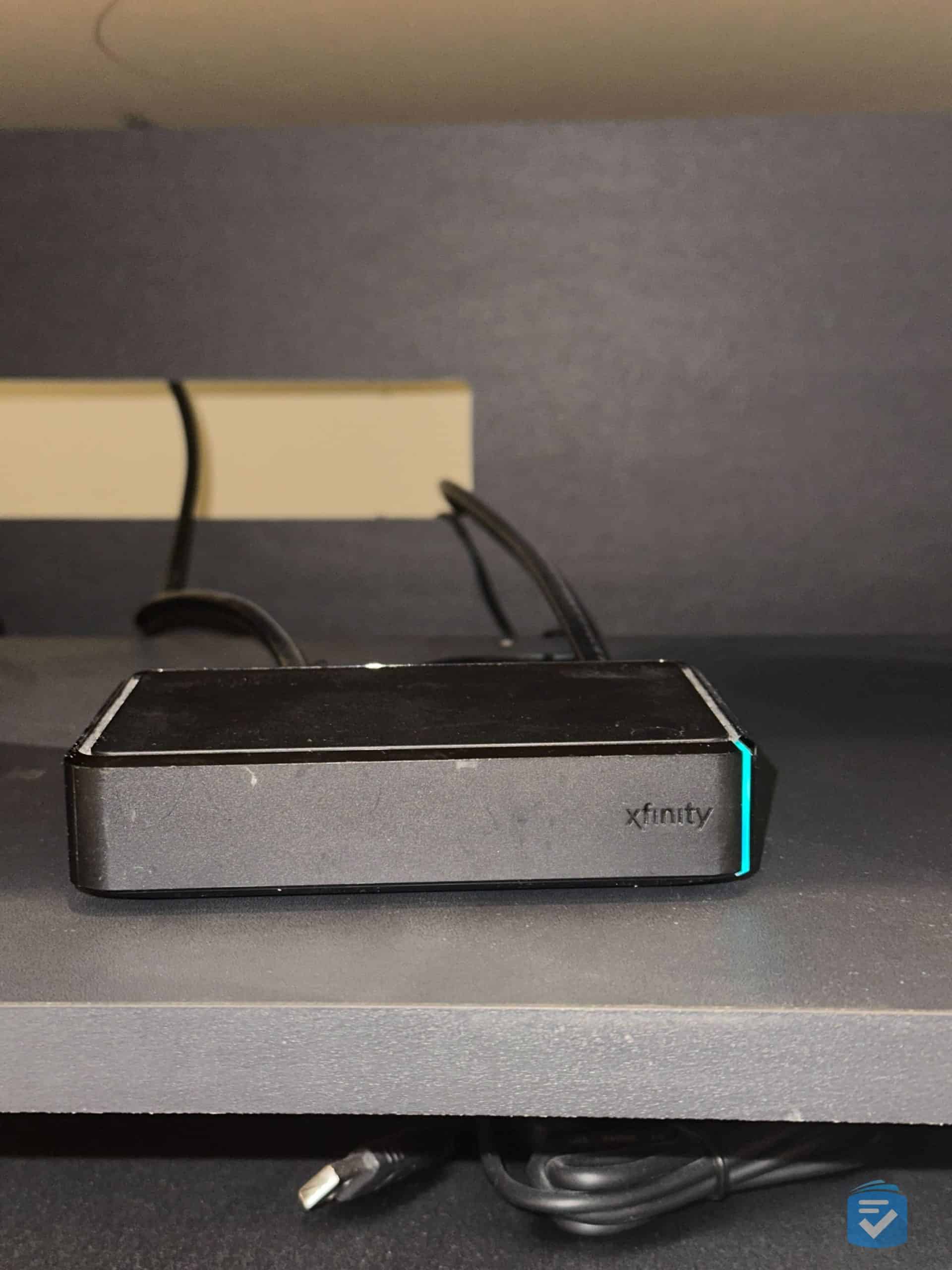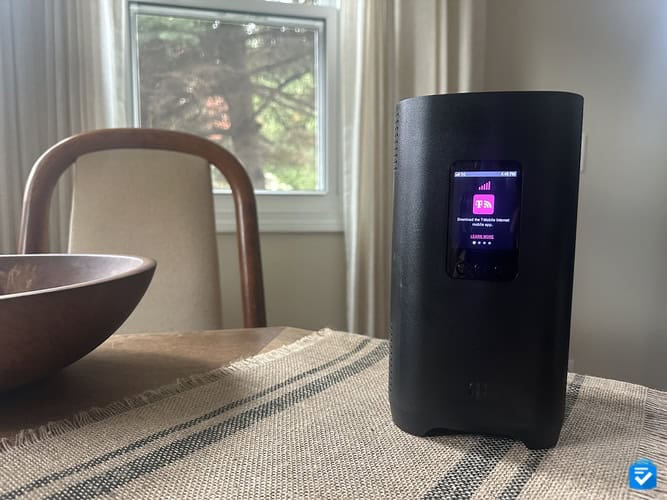The Best Cheap Internet Providers for Seniors (2025)
In an increasingly digital world, the internet isn’t just a commodity; it’s a necessity. Whether it’s to perform research, connect with friends and family, or even pay utility bills, finding cheap internet is essential for those on a budget. However, depending on where you live, your options may be few and far between, and your affordable options may be even narrower.
By researching and testing different Internet Service Providers (ISPs), I’ve found the cheapest and best options for seniors, no matter how much your budget is or where you live.
FYI:
While these internet providers are affordable, their cheapest plans come with somewhat slower speeds. To find the fastest internet at the best prices, read our guide to the best internet plans for seniors.
The Best Cheap Internet Providers for Seniors
- Xfinity : Lowest Monthly Cost
- T-Mobile Home Internet : Best Phone and Internet Bundle
- AT&T : Best Customer Service
Senior Internet Plans Compared
|
Xfinity
 |
T-Mobile Home Internet
 |
AT&T
 |
|
|---|---|---|---|
| Rating out of 5 | 4.3 | 4.2 | 4.4 |
| Starting monthly price | $10 |
$50 (with AutoPay) |
$55 |
| Speed* | 50 Mbps |
75 to 245 Mbps |
300 Mbps |
| Noteworthy features | Access to free Wi-Fi hot spots |
Discounts for bundling phone plans |
Fastest speeds and cybersecurity features |
| Read More | Xfinity Review | T-Mobile Home Internet Review | AT&T Review |
*Speeds listed represent the speed for the provider’s most affordable internet package.
Our Top Picks
1. Xfinity - Lowest Monthly Cost
What We Like Most:
- Prices starting at $10 per month
- Up to 1,200 Mbps
- Higher-tier plans include 24 months of Peacock Premium
- Xfinity Rewards include discounts and giveaways
Overview
Starting Cost: $10 per month
If budget is the most important thing on your list, I recommend Xfinity, which offers prices as low as $10 a month. That’s $40 less than T-Mobile’s lowest-cost plan, and $45 lower than AT&T’s cheapest plan.

Their Cheapest Plan
Xfinity’s cheapest plan offers speeds up to 50 Mbps, which is fast enough for four people to stream movies, video chat, and game online, along with the regular browsing and email. I installed my Xfinity Gateway myself so I could avoid installation fees, and it was as easy as plugging it into my outlet, downloading the Xfinity app, and creating an account. Once I created an account, the app gave me the rest of the step-by-step directions; the entire process only took a few minutes.
Note that not everyone is eligible for the $10 a month plan. It’s only available to those who are eligible for public assistance programs like:
- Medicare
- SNAP
- Supplemental Security Income
- National School Lunch Program
- Housing Assistance
However, given that many seniors are on Medicare, it’s likely that this plan will be available to you.
Next, I created a Wi-Fi network and password and connected my many devices: my iPhone, Kindle, laptop, and Roku. I haven’t had any issues with speed, as even this lowest-speed plan can support up to four devices. For one person, that’s more than enough. However, as many of us know, sometimes four devices isn’t enough for a household with multiple people. In 2023, the average U.S. household had 17 internet-connected devices, according to data from Parks Associates, so this plan may not work for you and your family.
Pricing
Xfinity’s plans range from $10 for those on qualifying government programs, to $70 a month, and the higher-tier plans may be more appropriate for someone with more than four devices connected to Wi-Fi. The good thing about the plans that are 1,000 Mbps and higher is that they include subscriptions to Peacock Premium for 24 months. Personally, this is one of my favorite streaming services, as I’m a gigantic Bravo fan, so it was a huge bonus in my book. The lower-tier plans are pretty bare-bones, however, hence their unbelievably low pricing. You can sign up for just one month, although you may be able to save money by signing up for 24 or 36 months.
Plan Comparison
| Speed in Mbps | Cost per month | Length of contract | Extras |
|---|---|---|---|
| 50 | $10 | 1 month | None |
| 100 | $29.95 | 1 month | None |
| 300 | $25 | 1 month | None |
| 1000 | $50 | 1 month | Peacock Premium for 24 months |
| 1200 | $70 | 1 month | Peacock Premium for 24 months |
Drawbacks
While Xfinity does offer the lowest prices on the market, 50 Mbps may not work for many people, as it only supports up to four devices. Plus, while Xfinity caps out at 1,200 Mbps, AT&T and T-Mobile offer speeds up to five times faster. If you’re willing to pay a bit more for speed, you may prefer AT&T or T-Mobile over Xfinity.
Our Verdict
With the lowest bottom line on the market, Xfinity is the cheapest internet provider, period. To learn more about this provider, read my guide to Xfinity internet for seniors.
Pros
- $10 a month for 50 Mbps
- Peacock Premium with plans 1,000 Mbps and above
- Free self-installation
- Easy, guided setup through Xfinity app
Cons
- Maximum speed is only 1,200 Mbps
- No perks with plans under 1,000 Mbps
2. T-Mobile Home Internet - Best Phone and Internet Bundle
What We Like Most:
- Affordable phone and internet bundles
- 72-245 Mbps speeds
- Hulu and Paramount+ subscriptions included on premium plan
- No annual contracts
Overview
Starting Cost: $50 per month with AutoPay
If you want to save money by bundling your phone and internet plans, consider T-Mobile as a one-stop shop. T-Mobile offers internet for only $50 per month (with AutoPay), and you’ll get an additional $15 monthly bill credit when bundling this service with a qualifying voice line.

Their Cheapest Plan
T-Mobile’s cheapest internet plan, Rely Home Internet costs $50 per month. However, if you combine this plan with a voice line, then you’ll get a monthly bill credit of $15, bringing your monthly cost to $35 for the internet.
Additionally, T-Mobile doesn’t require you to purchase or rent any equipment for their service. On every plan, they include a Wi-Fi gateway at no extra cost. Since this gateway operates off cellular signal as opposed to broadband, we were able to set it up ourselves without a professional.
Pricing
T-Mobile currently offers three different home internet plans. While they all offer the same typical download speeds, they differ slightly in terms of functionality. The Amplified Home Internet plan includes more advanced equipment that allows you to get faster speeds, and the All-In Home internet includes free streaming subscriptions and a Wi-Fi Mesh Access Point — ideal for larger homes.
To learn more about T-Mobile cellular service, read our rundown of T-Mobile senior plans.
Plan Comparison
| T-Mobile Internet Plan | Monthly Price* | Download Speeds | Included |
|---|---|---|---|
| Rely Home Internet |
|
72-245 Mbps |
|
| Amplified Home Internet |
|
72-245 Mbps |
|
| All-In Home Internet |
|
72-245 Mbps |
|
| Home Internet Backup |
|
72-245 Mbps |
|
*Pricing may vary by location.
Drawbacks
The biggest drawback of T-Mobile’s internet would have to be its fluctuating speeds. Unlike Xfinity and AT&T, which use broadband signal, T-Mobile uses cellular service. This meant that during times of peak usage, we experienced slower internet speeds, whereas Xfinity and AT&T remained relatively consistent throughout the day.
Our Verdict
If you need fast speeds on more than four devices and want to bundle internet and phone service, T-Mobile offers affordable bundles. To learn more, read my article on T-Mobile internet for seniors.
Pros
- Discounted home and internet bundles
- Hulu and Paramount+ subscriptions included with some plans
- Free Wi-Fi gateway device
- Easy self-installation
Cons
- Phone plans required for lowest prices
- Fluctuating speeds throughout the day
3. AT&T - Best Customer Service
What We Like Most:
- Highest J.D. Power customer satisfaction score on this list
- Ability to connect more than 12 devices
- Speeds of up to 5,000 Mbps
- Cancellation fee covered when you switch to AT&T Fiber
Overview
Starting Cost: $55 per month
There are few things more frustrating than not being able to use the internet you pay for. But of the companies on this list, AT&T has the highest customer satisfaction score, as determined by real customers surveyed by J.D. Power. It ranked number one in the North Central and West regions and number two in the South, right behind Google Fiber.
Their Cheapest Plan
AT&T’s cheapest internet plan costs $55 a month for speeds of 300 Mbps, which supports up to 10 devices. While that may not be enough for the average U.S. household, if you have a smaller household, it could work for you, and it beats T-Mobile’s $60 minimum for internet.
That being said, fiber internet is much more complicated to install than the broadband internet I tested from Xfinity and T-Mobile. It required a technician to come to my home and spend about five hours installing fiber from my home to the gateway. Since it was my first service line, the technician had to bury the gateway in my lawn. While fiber internet is faster than broadband, the involved installation process may be a turnoff to some people. While setting it up by yourself is possible, it’s difficult, so I’d leave it to the professionals.
Pricing
AT&T’s internet plans range from $55 to $250 a month, while speeds range from 300 Mbps all the way up to 5,000 Mbps. Contracts are monthly, and all plans include AT&T’s network security, which works 24/7 to block malicious threats.
Plan Comparison
| Speed in Mbps | Cost per month | Length of contract | Extras |
|---|---|---|---|
| 300 | $55 | 1 month | Connect 10 devices |
| 500 | $65 | 1 month | Connect 11 devices |
| 1,000 | $80 | 1 month | Connect 12 devices |
| 2,000 | $150 | 1 month | Connect more than 12 devices |
| 5,000 | $250 | 1 month | Connect more than 12 devices |
Drawbacks
None of AT&T’s plans include bundles with streaming services, so if you want more than just internet, I’d recommend T-Mobile, which offers Netflix and Apple TV Plus subscriptions. Additionally, the fiber internet installation process is arduous and time-consuming compared to simply plugging in a gateway.
Our Verdict
If you want the fastest internet on more than 12 devices, AT&T offers internet plans that will keep your speeds up and prevent malicious threats from entering your network.
Pros
- Speeds of up to 5,000 Mbps
- Network security included with all plans
- Fiber internet has faster speeds than broadband
- Monthly contracts
Cons
- No bundles with streaming services
- Fiber internet not available everywhere
Honorable Mentions
AT&T, Xfinity, and T-Mobile aren’t the only ISPs I tested. While these options deserve an honorable mention, here’s why they didn’t make the cut.
- Verizon: While Verizon tacks on tons of perks to its internet plans, from a Disney Plus Premium subscription to a $200 gift card to my favorite store, Target, its prices start at $49.99 a month for 300 Mbps. I could get the same speed from Xfinity for $25, about half that price.
- Spectrum: Spectrum has the same pricing as Verizon when it comes to its 300 Mbps plan. Again, I could buy a plan from Xfinity for half the price.
- CenturyLink: CenturyLink is similarly overpriced, with 100 Mbps internet for $55 a month. For the same price, I could get internet that’s three times as fast from AT&T, while Xfinity offers the same speeds for $25 less per month.
- Viasat: Viasat only offers satellite internet, which is best for rural areas without broadband connections. Its plans only go as fast as 150 Mbps, and professional installation is required. Plus, the only plan option costs $119.99 a month, which is pretty steep for such slow speeds.
- Cox: Cox has potentially fast speeds in some areas; however, we noticed frequent outages with this provider.
Our Methodology
When ranking the best internet for older adults, I used the following criteria:
- Pricing: On a month-to-month basis, internet can cost anywhere from $10 all the way up to $250. As you can see, that covers a wide range of budgets, but I prefer companies that offer plans towards the lower end.
- Contracts: While some internet companies will make you sign up for one, two, or even three years, I prioritized companies that didn’t require such a long commitment.
- Customer service: Looking at J.D. Power’s 2023 U.S. Residential Internet Customer Satisfaction Study, I saw which companies had higher ratings, and which ones had lower ratings, along with taking into account my own experiences interacting with the companies.
- Speeds: Speeds ranged from 50 Mbps all the way up to 5,000 Mbps. You can save money by choosing a lower-speed plan, but I prefer companies that provide a wide range of options.
- Extra features: Lastly, I looked for companies that offer extra features in addition to the internet, from streaming service subscriptions to Apple TV Plus, Netflix, and Peacock, to discounts and cybersecurity features.
How Seniors Can Get Discounted Internet Service
Unfortunately, as of April 2024, the Federal Communications Commission (FCC)’s Affordable Connectivity Program (ACP) is no longer funding internet for low-income U.S. households, nor is it accepting new applications or enrollments.
The ACP was a federal program that offered households discounts on monthly internet bills. However, Congress has run out of funding, so in January 2024, the FCC announced that the program was shutting down. May of 2024 is the last month ACP households will receive partial discounts, and they’ll no longer receive any benefits after May.
That being said, your city or state may offer discounted internet service even though the federal government no longer does. Check with your local and state governments to see which plans you may be eligible for, if any.
Bottom Line
While seniors may have the unfair stereotype of being tech Luddites, the truth is that, according to a 2021 Pew Research study, 96 percent of U.S. adults ages 50 to 64, as well as 75 percent of those 65 and older, use the internet. I hope this article helps you find a reliable ISP that fits into your budget.
Frequently Asked Questions
-
Is there discounted internet for seniors?
While the FCC’s Affordable Connectivity Program stopped taking applications in February of 2024 and had its last fully funded month in April of 2024, you may still be able to get discounted internet through other more local sources. For example, the city of Philadelphia provides free or low-cost internet for households meeting certain income eligibility requirements, so check with your local city or state to see if there’s a program you’re eligible for.
-
How can seniors get free internet?
Seniors may be able to get free internet through their city or state government programs. However, the federal government no longer offers discounted internet through the Affordable Connectivity Program as of April 2024, or Lifeline as of December 2021. Depending on where you live and what programs you’re eligible for, you may or may not be able to get free internet as a senior.
-
Which internet provider is the cheapest?
With a 50 Mbps plan starting at just $10 a month, Xfinity is the cheapest internet provider in the U.S.
-
What internet speed do I need?
The internet speed you need depends on how you’re using the internet, how many users are using the internet, and how many devices are using the internet at the same time. Here are the speeds recommended by the FCC:
Recommended broadband speed in Mbps by internet usage 1 user, 1 device 2 users/devices 3 users/devices 4 users/devices Email, browsing, basic video, VoIP, internet radio 3-8 3-8 12-25 12-25 High-demand applications such as streaming HD video, multiparty video conferencing, online gaming, telecommuting 3-8 12-25 12-25 26 and over More than 1 high-demand application running simultaneously 12-25 12-25 or 26 and over 12-26 and over 12-25 or 26 and over
